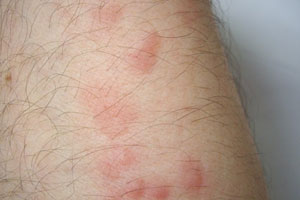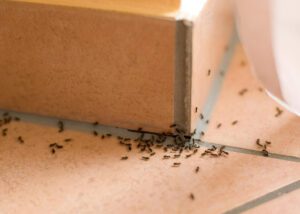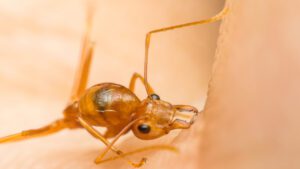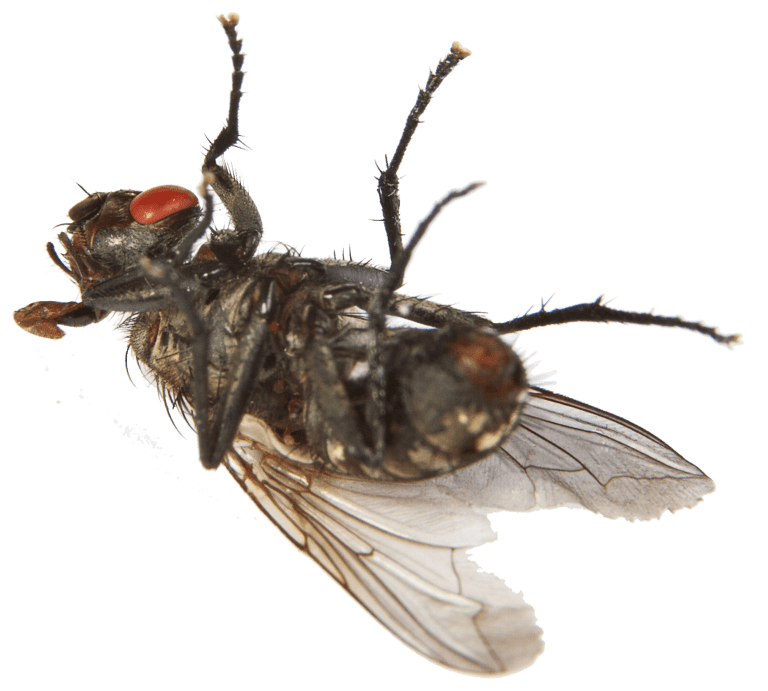Bed bugs are nasty little creatures that have sharply pointed beaks that puncture your skin as they inject you with a mild anesthetic so that you don’t feel pain when they bite. They similarly release an anticoagulant on the site to keep the blood from clotting so they can suck freely. Knowing how to identify bed bug bites can help you take corrective measures before things get out of hand.
Live Bed Bugs
Bed bugs are small, about the size of an apple seed. They are dark brown but take on a dark-red tinge when they have fed. They prefer warm places where they can eat and reproduce uninhibitedly. One advantage they have over us is that they are good travelers. They can hitchhike on your bag, clothes, or body from distant lands or from the neighbor’s and then take over your home.
Bed Bug Bites
For most homeowners, the first evidence of the presence of these pesky creatures is the appearance of itchy bites on their bodies. Beware, though, that bites alone are not a conclusive identification factor for bed bugs, as the United States Environmental Protection Agency advises.
Visiting a dermatologist might be a prudent step if you have sudden inexplicable itchy rashes on your body. They can help to narrow the cause and ascertain whether it’s a bed bug bite. That’s because several other insects bite the same way, producing itchy red welts. Mosquitoes, mites, and lice—these insects similarly inject you with an anticoagulant to thin your blood, so they can keep sucking.
Then again, the red rash could be a skin problem, possibly an allergy or a skin condition like eczema. Bed bug bites and eczema have similar symptoms. An expert can help to distinguish the two by their tell-tale signs so you can be sure whether to call a pest control professional.
Signs Of Bed Bug Bites
A bed bug can bite you anywhere on your body, but they prefer the places that stay exposed when you sleep. Typical bed bug hotspots include the neck, arms, shoulders, and face. The bites are often clustered together in a zigzag-like pattern that experts call ‘breakfast, lunch and dinner marks.’
 The symptoms of a bed bug bite include:
The symptoms of a bed bug bite include:
- Small flat or raised welts with a bright center
- A painful, itchy sensation
- A red bump with a black center
- Small red welts in a line or a zigzag pattern
- Redness and inflammation around the areas
- The lumps may turn to blisters or hives
- Tiny spots of blood dried onto your sheets or shirts
- Black or dark-reddish spots on the walls or fabrics
- Transparent skins molted by the nymphs
Initially, one may not be able to tell that they have been bitten, given the anesthetic properties of bed bug saliva. Your body’s allergic reaction to the saliva also takes time. After a few hours, days, or weeks, the lumps start becoming quite itchy.
In a 2009 study, scientists volunteered to be bitten by bed bugs on their arms to find out the reaction times. They found that reactions to bed bug bites can take as long as 11 days. That confirms that responses to bed bug bites can delay for a week or two. But Scientific American also reports that only 70 % of people react to bed bug bites. The rest might never show symptoms at all, and that demographic mostly comprises of the elderly.
Bed Bugs Feeding Patterns
A single bed bug can feed several times a night. Hence, it’s not always accurate that each bite mark represents different bugs. A typical meal for the pests lasts ten minutes. After they are full, they scamper to hiding spots along your mattress seams, headboards, and furniture. The insects often hide no more than ten feet from their host, where they get to digest the blood, mate, lay, eggs and crawl back for more feeding.
Usually, after feeding, a bed bug might be unable to digest the whole blood meal. In that case, a few drops of blood passes through their body and onto your sheets or clothes. These drops are an essential clue to ascertaining the incidence of bed bug bites, especially if you are the non-reactive type.
Sign That Bed Bugs Are Coming to Feast
Like yellow ants, beetles and stink bugs, bed bugs release an alarm odor too when disturbed. You may catch a whiff of that odor as you turn in your sleep—it is an unpleasant coriander-like smell. That should be a sign for you to brace for an attack.
Differences Between Bed Bug Bites and Mosquito Bites

Unlike the clustered bed bug bites, mosquito bites are random and isolated. Mosquito bites also dissipate and heal faster compared to bug bites. Also, as seen earlier, it may take a few days to feel the itchiness of a bed bug bite, but for mosquito bites, it’s just a few hours if not immediately.
Another clear distinction between the torments caused by these two parasites is what they leave behind. Bed bugs will leave tiny red droppings on your sheets. Mosquitoes rarely leave behind evidence of their nightly hunting.
Differences Between Bed Bug Bites and Lice Bites
Lice bite causes immediate itching on the affected area. You may also witness pale blue spots close to the bite marks. Lice droppings often look like a dark brown powder deposited on your skin and clothes. As a reaction to the bites, you might get a low-grade fever or be unusually irritable. These signs all defer from the bed big bites explored earlier.
Differences Between Bed Bug Bites and Flea Bites
Bed bug bites and flea bites are similar in many ways. One way to distinguish the two is the length of time it takes to feel the pain. Flea bites start itching almost immediately. Also, even though both bites lead to inflammation, bed bug bites are usually larger than flea bites. Upon close investigation, you will always find that flea bites are a little random compared to the patterned bed bug bites.
Differences Between Bed Bug Bites and Hives
Hives appear naturally on your skin, often caused by allergies. Hives can be just as itchy as bed bug bites. The red lumps, in this case, often grow more prominent and change shape. The marks may spread to other areas of your body in a short time. Bed bug bites don’t change in shape or shift in location.
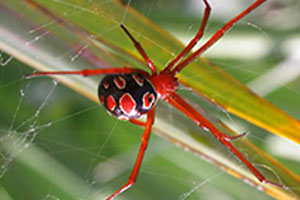 Differences Between Bedbug Bites and Spider Bites
Differences Between Bedbug Bites and Spider Bites
Both of these pests have a red and itchy bite. However, whereas bed bugs bite repeatedly, spider bites are a one-time occurrence. If you see only one red itchy mark on your body, it’s more likely to be a spider bite than a bedbug bite.
Don’t Let the Bed Bugs Bite, Talk To Professionals
Command Pest Control is a qualified, licensed, and experienced pest control company in Broward County. We deliver expert pest control services informed by science and innovation and backed by 25 years of experience.
We believe in providing uncompromised and affordable pest control services. We are first and efficient and adhere to all federal and state environmental regulations. Unlike other pest control companies, we don’t subcontract –we will exterminate your pests ourselves and keep your family safe.
Let us solve your bed bug menace once and for all. Contact us at (954) 943-0008 to request an inspection.

